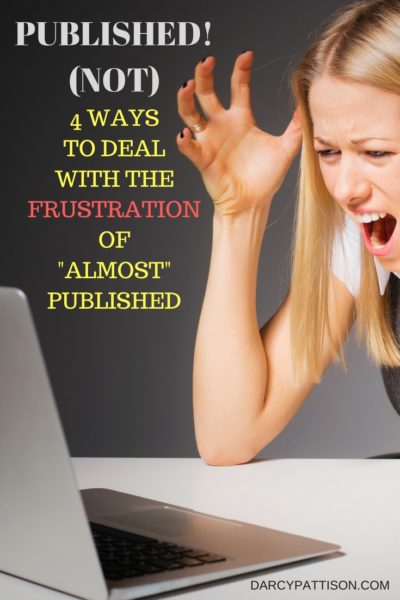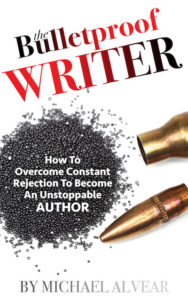Guest post by Michael Alvear
I once had an agent ask for an exclusive. Then he requested three rounds of revisions, and still didn’t sign me. I’ve also had a publisher tell me that they “love my work” but passed on my manuscript because they had something “too similar” coming out the following year.
If there is one thing I’ve learned about publishing, it’s this: it will break your heart in unexpected ways. What got me through the frustration of periods of being “almost” published was accepting several truths about the industry:

- Rejection is not an indictment of your work. Every rejection feels personal. But it isn’t. Personal, that is. More likely, it has to do with fit, timing, personal preference, and countless other factors you can’t control. To reorient myself, I’ve learned to do two things—recommit to improving on a craft level, and identify and focus on the deeper reasons why I write. The latter may sound easy and obvious, but it’s not, which is why I explore the concept of a writer’s purpose so deeply in The Bulletproof Writer.
- Less than 1% of writers make a living wage. That’s not meant to depress you, but to remind you that while it may seem like everyone around you is getting contracts and deals, it’s actually not true. Sure there are authors who make it big, but they are the exception, and not the rule. Breaking down the realities of getting published in today’s kid lit market helps you maintain perspective. I regularly refer to the section in the book discussing the number of rejections authors typically experience as a way to stay grounded.
- Rejection doesn’t stop once you’re published. We focus so much on getting that publishing contract, we forget that the specter of rejection haunts us at every point in the journey, including contending with bad reviews, poor sales numbers, critics, etc., after publication. During a particularly bad period, I researched techniques resiliency experts recommend and adapted them for writers. The most important one? Connecting with your “tribe.” Darcy’s blog can be a kind of tribe, but ideally, you want to connect with other kid-lit writers on the same journey, which you can find through SCBWI.
- Use envy as a change agent. Becoming consumed with the green-eyed monster when friends and acquaintances experience success is not uncommon. It certainly wasn’t for me. I learned to differentiate between malignant envy and one that inspires. One key for doing that, according to a recent study on jealousy, is to compare yourself to appropriate writers—namely, somebody with equal or slightly better writing skills. Why? Because comparing yourself to the giants in your genre will leave you depressed (“I’ll never be as good as Rick Riordan”). But comparing yourself to somebody who’s similar in abilities can leave you energized (“Hey! If she can do it, I can do it!”).
Learning to manage the constant stream of rejection, frustration, resentment, and despair that comes with trying to get published is critical to surviving in this industry. Luckily there are proven tools to help get us off the floor and back on the computer.
—
![]()
Michael Alvear is the author of The Bulletproof Writer: How To Overcome Constant Rejection To Become An Unstoppable Author (Woodpecker Media January 2017).

He’s been a frequent contributor to National Public Radio’s All Things Considered and his work has appeared in Newsweek, The Washington Post, Reader’s Digest, The New York Times, The Los Angeles Times and The Huffington Post.